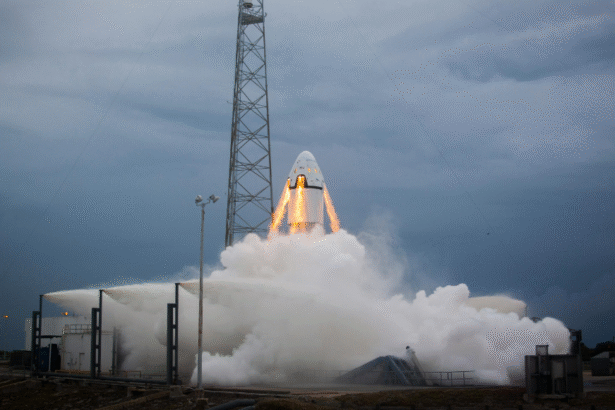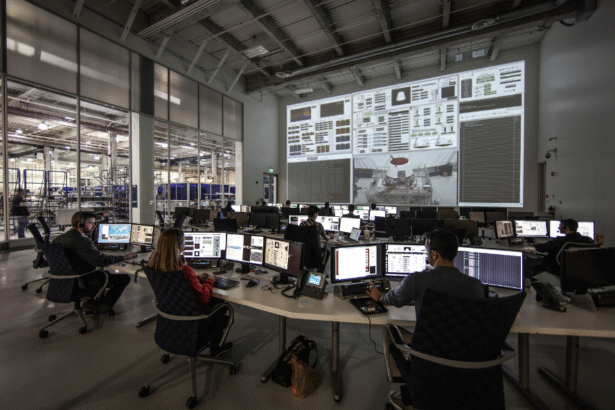The aerospace industry is undergoing a profound transformation, spearheaded by the emergence of “New Space” companies. This paradigm shift, characterized by private enterprise, innovative technologies, and a focus on commercial viability, is rapidly democratizing access to space and fundamentally reshaping its future. What was once the exclusive domain of government agencies is now a vibrant ecosystem of ambitious startups and well-funded ventures, pushing the boundaries of what's possible in Earth orbit and beyond? The rise of new space companies marks a pivotal moment, promising unprecedented opportunities for economic growth, scientific discovery, and human expansion into the cosmos.
New Space Companies and Their Future
The future of new space companies is characterized by several key trends: reusability, mega-constellations, in-space manufacturing, and direct-to-device connectivity. Reusability, championed by pioneers like SpaceX, has dramatically driven down launch costs, making space far more accessible. This cost reduction is fueling the proliferation of satellite mega-constellations, like Starlink, which aim to provide global internet coverage. These massive networks are redefining satellite operations and the commercial models for space-based services.

Looking ahead, new space companies are increasingly focused on in-space manufacturing, envisioning orbital factories that can produce everything from satellite components to entire spacecraft in microgravity. This will reduce reliance on Earth-based production and enable the construction of larger, more complex structures in orbit. Another exciting frontier for new space companies is direct-to-device communication, where satellites connect directly to standard smartphones, bridging connectivity gaps in remote areas and expanding the reach of global communication networks. The long-term trajectory for these new space companies involves not just Earth orbit, but also lunar and Martian exploration, paving the way for sustainable human presence off-world.
Investing in Space Tech Companies
The burgeoning space economy has become an increasingly attractive sector for investors. Venture capital activity in space tech continues to outpace the broader market, with a record number of new space companies securing funding rounds. This interest is driven by the vast potential for disruption, the increasing demand for space-based services, and the perceived stability of space assets for defense, climate monitoring, and global connectivity.
Investors are looking at diverse segments, from launch services and satellite manufacturing to data analytics, in-orbit servicing, and even space tourism. Early-stage new space companies are particularly appealing due to their high growth potential. Public markets are also showing renewed interest, with several previously public new space companies seeing significant recovery in share prices. While exits like IPOs might remain somewhat muted in the immediate term, the overall investor sentiment for new space companies is robust, with expectations of continued substantial growth in private market investments through 2025 and beyond. Investment firms specializing in space tech are also emerging, providing dedicated capital and expertise to help new space companies scale.
Top 5 New Space Companies
While the field is constantly evolving, several new space companies have firmly established themselves as leaders, shaping the industry's trajectory.
1. SpaceX
Arguably the most disruptive of all new space companies, SpaceX continues to dominate the launch industry with its reusable Falcon 9 and Falcon Heavy rockets. Its Starlink constellation is rapidly expanding, providing internet services globally, and its Starship program aims to revolutionize heavy-lift transportation and deep-space exploration, including human missions to Mars.
2. Blue Origin
Founded by Jeff Bezos, Blue Origin is a formidable player among new space companies, focusing on both suborbital space tourism with its New Shepard vehicle and orbital heavy-lift capabilities with the New Glenn rocket. New Glenn had its first successful launch in January 2025, a significant milestone. Blue Origin is also heavily involved in lunar lander development for NASA's Artemis program, positioning itself as a key partner for future moon missions.

3. Rocket Lab
A leading provider of small-satellite launch services with its Electron rocket, Rocket Lab is rapidly expanding its capabilities. This is one of the new space companies that are also venturing into satellite manufacturing and developing a medium-lift, reusable rocket called Neutron, directly challenging larger competitors and solidifying its position as a major US space company.
4. Relativity Space
Known for pioneering 3D-printed rockets, Relativity Space aims to revolutionize manufacturing in space. Their Terran 1 rocket was a testbed for their additive manufacturing techniques, and they are now focused on the larger, reusable Terran R. Their vision extends to building entire industrial bases on Mars, a bold move for new space companies.

5. Firefly Aerospace
Another significant player in small- and medium-lift rockets, Firefly Aerospace is focused on providing cost-effective launch services for a wide range of payloads. Their Alpha rocket is gaining traction, and they are also developing lunar landers, marking them as ambitious new space companies.
Finding Space Startups
For investors, talent, or partners, identifying promising space startups requires staying informed about funding rounds, technological breakthroughs, and industry trends.
1. Venture Capital Reports
Follow reports and portfolios from prominent VC firms specializing in space, such as Seraphim Space Ventures, Space Capital, and SpaceFund. These often highlight emerging new space companies.
2. Industry Conferences and Events
Attend major space tech conferences like Space Symposium, World Satellite Business Week, and regional space conferences. These events are prime opportunities to connect with new space companies and see their innovations firsthand.
3. Startup Accelerators
Programs like the Techstars Space Accelerator, Seraphim Space Camp, and national space agency accelerators (like the UK Space Agency Accelerator) nurture early-stage new space companies and are excellent sources for discovering new ventures.

4. Specialized News Outlets
Read publications like SpaceNews, Via Satellite, and industry-focused blogs and newsletters that specifically cover the startup scene and investment activities of new space companies.
5. Pitch Competitions and Challenges
Keep an eye on space-related pitch competitions and innovation challenges, as these often showcase promising new space companies and their groundbreaking ideas.
US and UK Space Companies
Both the US space companies and UK space companies are at the vanguard of the New Space movement, driven by strong government support, private investment, and a rich history of aerospace innovation.
US space companies benefit from substantial government contracts from NASA and the Department of Defense, particularly the US Space Force, which drives demand for advanced capabilities in launch, satellite services, and national security space. Beyond SpaceX and Blue Origin, a vibrant ecosystem of US space companies includes Maxar Technologies (earth intelligence), Planet Labs (Earth observation data), Rocket Lab, Relativity Space, and numerous others that provide specialized components, software, and services. The US space companies continue to lead in terms of investment and technological breakthroughs.

The UK space companies sector is also experiencing rapid growth, with ambitious goals for increasing its share of the global space market. The UK is actively developing its domestic launch capabilities, with several spaceports under construction or planning (e.g., SaxaVord Spaceport in Scotland). Key UK space companies include OneWeb (a global satellite internet constellation, now part of Eutelsat OneWeb), Orbex (developing a green-fueled rocket), Skyrora (another launch provider), and Reaction Engines (pioneering advanced propulsion systems like SABRE).
The UK Space Agency provides significant support through accelerators and funding initiatives, fostering a dynamic environment for new space companies and encouraging innovation in areas like satellite manufacturing, in-orbit servicing, and space debris removal, demonstrating a strong commitment to the future of new space companies.

Conclusion
The rise of new space companies represents a fundamental reorientation of humanity's relationship with space. From reusable rockets transforming launch economics to vast satellite constellations connecting the globe, the pace of innovation is relentless. As new space companies like SpaceX and Blue Origin continue to push boundaries, complemented by a thriving ecosystem of specialized startups and strong governmental backing in regions like the US and UK, the next decade promises unprecedented advancements in space technology. The future holds the potential for routine space travel, robust orbital economies, and perhaps, the establishment of permanent human outposts beyond Earth, all propelled by the ingenuity and ambition of new space companies.









